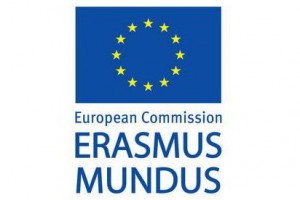 What is Erasmus Mundus?
What is Erasmus Mundus?
Erasmus Mundus is a European Commission funded programme which provides support to organisations (such as BU) as a whole in order to establish partnerships and to individual researchers, students or professional support staff in order to study/ research/ teach. The programme is based on the following principles:
- To promote mobility at all level of studies for students (undergraduates and masters),doctoral candidates, researchers, academic and administrative staff
- To enhance the quality of European higher education
- To promote dialogue and understanding between people and cultures through cooperation with other countries
- To contribute to the development of human resources and the international cooperation capacity of Higher education institutions in Third Countries (such as the USA, Zambia, South Africa, India and Chile) by increasing mobility between the European Union and these countries
What type of funding is available?
There are 3 different strands of funding:
Action 1: Joint Programmes (including scholarships)
This Action will foster cooperation between higher education institutions and academic staff in Europe and Third Countries with a view to creating poles of excellence and providing highly trained human resources. Joint programmes of outstanding academic quality are designed and implemented by a consortium of European universities from at least 3 different countries. Consortia may also include universities from other parts of the world. Scholarships / fellowships are open to higher education students and academics from all over the world. Programmes include obligatory study and research periods, in at least two universities, and award recognised double, multiple or joint degrees. Action 1 provides:
• Support for high-quality joint masters courses and doctoral programmes offered by a consortium of European, and possibly Third Country, higher education institutions. Other types of organisations concerned by the content and outcomes of the joint programme can participate in the consortium.
• Scholarships/fellowships for Third Country and European students/doctoral candidates to follow these Erasmus Mundus joint masters’ courses and doctoral programmes.
• Short-term scholarships for Third Country and European academics to carry out research or teaching assignments as part of the joint masters programmes.
Action 2: Partnerships with Third Country higher education institutions and scholarships for mobility
Partnerships in the framework of Erasmus Mundus 2009-2013 are the basis for enhancing academic cooperation and exchanges of students and academics, contributing to the socio-economic development of non-EU countries targeted by EU external cooperation policy. Consortia must include a minimum of 5 higher education institutions from at least 3 European countries and a number of higher education institutions from targeted non European regions. Special attention is given to disadvantaged groups and populations in vulnerable situations. Action 2 provides:
1. Support for the establishment of cooperation partnerships between European higher education institutions and higher education institutions from targeted Third Countries with the objective of organising and implementing structured individual mobility arrangements between the European and Third Country partners.
2. Scholarships of various lengths – depending on the priorities defined for the Third Country concerned, the level of studies or the particular arrangements agreed within the partnership – for European and Third-Country individuals (students, scholars, researchers, professionals).
Action 2 activities are funded by different financial instruments available in the context of the External Relations activities of the Union (i.e. the European Neighbourhood and Partnership Instrument, the Instrument for Pre-Accession Assistance, the Development Cooperation and Economic Cooperation Policy Instrument, the European Development Fund and the Industrialised Countries Instrument). Because of the diversity in the policy objectives covered by these financial instruments, and the different needs and priorities of the Third Countries concerned, Action 2 implementation rules may vary considerably from one year to another and from one partner country to another.
Action 3: Promotion of European higher education
Action 3 promotes European higher education through measures enhancing the attractiveness of Europe as an educational destination and a centre of excellence at world level. Action 3 projects should contribute to:
1. the promotion and awareness raising of the European higher education sector as well as the relevant cooperation programmes and funding schemes;
2. the dissemination of the programme’s results and examples of good practice;
3. the exploitation of these results at institutional and individual level.
This Action provides support to activities related to the international dimension of all aspects of higher education, such as promotion, accessibility, quality assurance, credit recognition, mutual recognition of qualifications, curriculum development and mobility.
Activities can be implemented by mixed networks of organisations active in the field of higher education composed of at least 3 participating organisations from European countries and 1 from Third Countries.
What kind of activities are included?
Funding can be used for a range of activities, depending on the applicant, as the following table illustrates:
| Higher education institutions organised into consortia/partnerships
|
Higher education institutions can participate in:
- Consortia to develop and implement joint masters/doctoral programmes (Action 1);
- Partnerships (Action 2);
- Consortia to develop and implement promotion projects (Action 3).
|
| Other bodies
|
Other bodies active in the field of higher education and research:
• Other public or private bodies active in the field of education and research can participate in:
– Consortia to develop and implement joint masters/doctoral programmes (Action 1).
– Consortia to develop and implement promotion projects (Action 3).
• Enterprises and other employers can participate in:
– Consortia to develop and implement joint doctoral programmes (Action 1).
• Erasmus Mundus National Structures can participate in:
– Consortia to develop and implement promotion projects (Action 3).
Other bodies which could be particularly relevant for the objectives and activities of the programme:
• Associates partners from the eligible countries can be involved in the Partnerships (Action 2). They play an active role in the action but they are not beneficiaries and may not receive funding from the grant. |
| Students and academics
|
• Students in higher education can receive scholarships for:
– Undergraduate studies (Action 2);
– Masters studies (Actions 1 and 2); • Doctoral candidates can receive fellowships for:
– Doctoral studies (Actions 1 and 2);
– Post-doctoral studies (Action 2);• Teachers and researchers can receive fellowships for:
– Teaching and research periods (Actions 1 and 2);• Other academic staff can receive scholarships / fellowships under Actions 1 and 2 |
What is the application process?
The Education, Audiovisual and Culture Executive Agency (EACEA) is responsible for the management of all three actions of Erasmus Mundus, under the supervision of the Directorate-General for Education and Culture (DG EAC of the European Commission) and EuropeAid Development and Cooperation (DG DEVCO). This means applications must be made to them directly. The process of application is dependent on who is submitting the proposal.
Institutions organised into consortia/partnerships: Higher education institutions and organisations active in the field of higher education have to apply centrally to the Education, Audiovisual and Culture Executive Agency in accordance with the application conditions and timetable defined in the Programme Guide and the relevant Call for Proposals. There must be one co-ordinating/applicant institution that submits the application on behalf of the consortium/partnership/network of participating organisations Applicants must be located in an eligible applicant country as defined in the Programme Guide.
Scholarships and fellowships: Students, doctoral candidates, teachers, researchers and other academic staff should address their applications directly to the selected Erasmus Mundus Masters and doctoral programmes (Action 1) and to the selected Erasmus Mundus partnerships (Action 2), in accordance with the application conditions defined by the selected consortium/partnership.
What costs are covered?
Institutions organised into consortia/partnerships: Consortia/partnerships selected under Actions 1 and 2 receive lump-sum amounts for the implementation of their activities and a number of scholarships to award to the best applicants. Proposals selected under Action 3 are co-funded up to a maximum of 75% of their costs.
Scholarships and fellowships: Scholarship amounts can vary according to the level of studies/teaching/research, their duration (3 months to 3 years) and the grantee’s nationality (scholarships for non-EU individuals are higher than for EU individuals).
The Programme Guide provides all the necessary information on the application conditions and criteria corresponding to each of the 3 Programme Actions. Regular Calls for Proposals are published to specify the activities, the application criteria and the budgetary allocations relevant to the call concerned.
 EU Funding & Grant Writing:With FP7 drafts being released already, I’ve invited Martin to host a one day workshop on EU funding and grant writing, as it is very different from UK funders. I organised this session last year and the feedback we received from staff who attended was excellent“I must say it’s a great workshop, which provides us a number of important points we should pay attention to while drafting our proposals.”. This will take place in K103 (Kimmeridge House, Talbot Campus) on February 15th and all refreshments and lunch will be included. Attending this session will also enable you to access Martin’s excellent reviewing skills for your submission until September, which is fantastic.
EU Funding & Grant Writing:With FP7 drafts being released already, I’ve invited Martin to host a one day workshop on EU funding and grant writing, as it is very different from UK funders. I organised this session last year and the feedback we received from staff who attended was excellent“I must say it’s a great workshop, which provides us a number of important points we should pay attention to while drafting our proposals.”. This will take place in K103 (Kimmeridge House, Talbot Campus) on February 15th and all refreshments and lunch will be included. Attending this session will also enable you to access Martin’s excellent reviewing skills for your submission until September, which is fantastic. Marie Curie Fellowships: These grants are absolutely the best way to kick start your EU career; they have a fantastic success rate for applications (40%) and you only need one other EU partner. You can either apply to have an academic come to the university from Europe or you can go to another European country as part of the fellowship scheme. BU has had success with Marie Curie grants before and Martin is an absolute expert in writing these types of grant. This session will be dedicated to selecting the right grant for you and how to write a fantastic proposal. This will take place in EB702 (Exec Business Centre, Lansdowne Campus) on February 16th and all refreshments and lunch will be included. Attending this session will also enable you to access Martin’s excellent reviewing skills for your submission until the official deadline in September.
Marie Curie Fellowships: These grants are absolutely the best way to kick start your EU career; they have a fantastic success rate for applications (40%) and you only need one other EU partner. You can either apply to have an academic come to the university from Europe or you can go to another European country as part of the fellowship scheme. BU has had success with Marie Curie grants before and Martin is an absolute expert in writing these types of grant. This session will be dedicated to selecting the right grant for you and how to write a fantastic proposal. This will take place in EB702 (Exec Business Centre, Lansdowne Campus) on February 16th and all refreshments and lunch will be included. Attending this session will also enable you to access Martin’s excellent reviewing skills for your submission until the official deadline in September.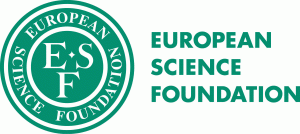





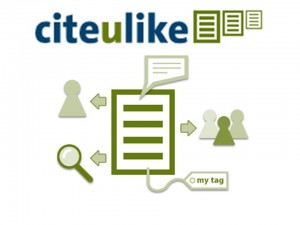

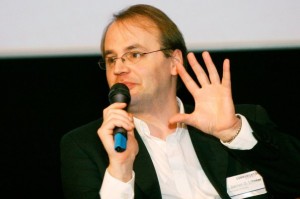
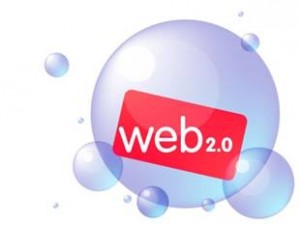
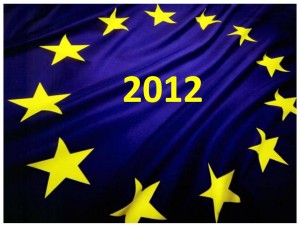
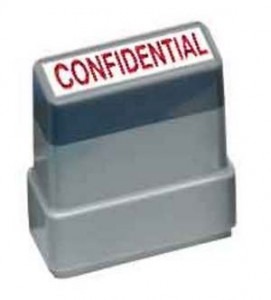




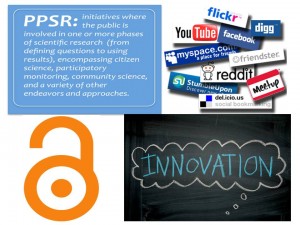











 New weight change BU paper
New weight change BU paper One week to go! | The 16th Annual Postgraduate Research Conference
One week to go! | The 16th Annual Postgraduate Research Conference Geography and Environmental Studies academics – would you like to get more involved in preparing our next REF submission?
Geography and Environmental Studies academics – would you like to get more involved in preparing our next REF submission? Congratulations to three former BU staff
Congratulations to three former BU staff MSCA Staff Exchanges 2024 Call – internal deadline
MSCA Staff Exchanges 2024 Call – internal deadline Applications are now open for 2025 ESRC Postdoctoral Fellowships!
Applications are now open for 2025 ESRC Postdoctoral Fellowships! Horizon Europe – ERC CoG and MSCA SE webinars
Horizon Europe – ERC CoG and MSCA SE webinars MaGMap: Mass Grave Mapping
MaGMap: Mass Grave Mapping ERC grants – series of webinars
ERC grants – series of webinars